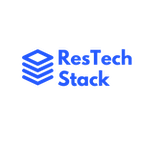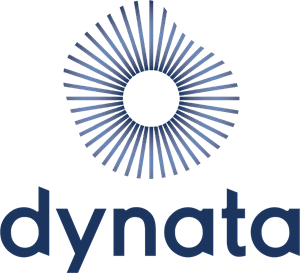
In the fast-moving world of Market Research, a massive shift is underway, and it all boils down to control. Agencies that once monopolized data collection and insight generation are now watching over their shoulders as brands increase their in-house capabilities and seek software solutions to gather and analyze research data.
ResTech (Research Technology), previously used only on edge cases, is now at the center of this shift, giving users a higher level of control, speed, precision, quality, and cost-effectiveness.
This transformation is not without reason. ResTech offers brands unprecedented control that traditional managed services and archaic research approaches historically needed to match.
In this article, I will go over the benefits that market research software can bring to brands, specifically focusing on the internal teams that shoulder the weight of strategic decision-making and customer engagement.
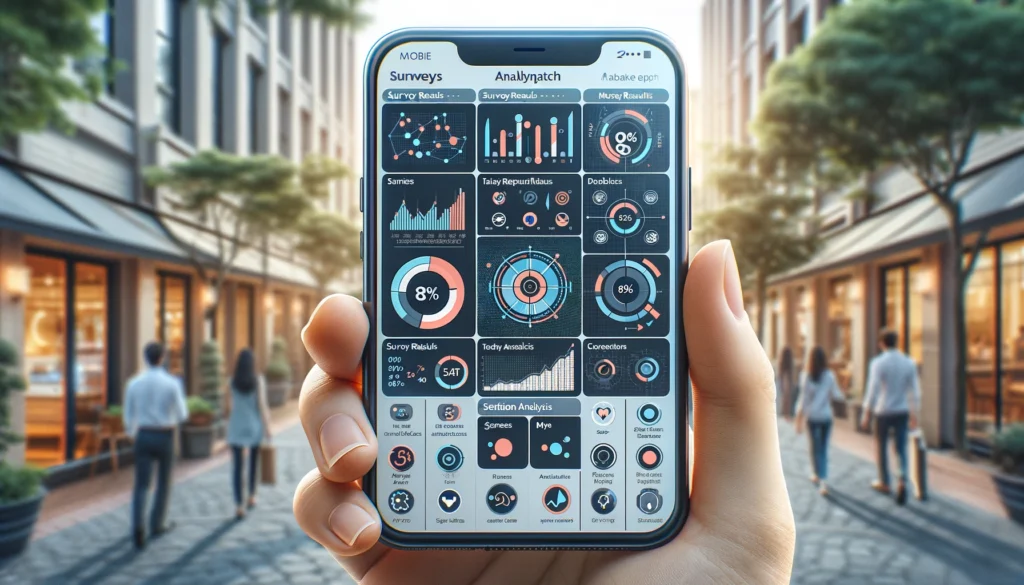
Understanding the Market Research Landscape
Before weighing the benefits of different approaches, it’s essential to establish their role and importance. Market research is the backbone of informed business decisions and drives strategies in product development, advertising campaigns, pricing, and overall market positioning.
For years, market research methodologies have grown and evolved like the industries that harness its power. The core objective remained constant: understanding the market and its customers. What’s changing now is how companies approach this critical function.
Historically, managed services from agencies provided a haven for brands. They offer expertise, quality data, and proprietary methodologies while taking on the responsibility and labor needed to get each project in and out of field.
Advancements in technology have leveled the playing field, allowing brands to take control of their research by employing various market research tools.
Software is changing not only things in agencies but every industry segment. Take online panels, for example. They have traditionally provided the respondents that fueled most of the research projects. Researchers can now subscribe to online sample marketplaces like Pure Spectrum and Cint/ Lucid for sample and other offerings.
These end-to-end platforms allow brands to take complete control of their research. Users can set the overall project budget and program surveys, select the target audience, launch surveys, collect survey responses, automate the field schedule, and use the onboard data visualization and insights tools.

Managed Services vs. Market Research Software
Managed Service
Brands rely on managed services for excellent reasons. Agencies provide expertise and specialization in various methodologies, best practices, and industry standards.
Software is coded, but agencies and the like offer valuable human input, from the nuanced art and science of survey design to the finesse needed to uncover trends in market data.
The Full-Service approach is often presented as the most comprehensive, ensuring nothing falls between the cracks and their “easy button” of convenience and knowledge. Additionally, without a professional touch, the insights may lack strategic guidance that only traditional agencies can provide.
Agencies are often the only ones that can conduct market research that requires heavy lifting or a particular type of analysis. The three titans in this space are Kantar, Nielsen, and IPSOS, who each do over 3B a year in research services.
These firms and many other classic MRAs use restech from third-party providers, develop proprietary solutions, or, more often, acquire a company with the tech. A recent example is Savanta acquiring Explorer Research for its online and virtual reality shopper research capabilities.
Service and specialization services come at a cost and can sometimes be prohibitive. The personal and expert touch rightfully commands a premium, leading to steep and sometimes unpredictable invoices that many brands, notably smaller emerging ones, need help to justify.

Market Research Software
Everything is advancing, including business needs for speed and control, and Software is stepping up to fill the gap created by archaic research methodologies. These research tools offer brands more control over their research process, timelines, approach, and data…from survey design and data collection to analysis, data visualization, and reporting. This level of autonomy almost always translates into significant cost savings and a faster method of conducting market research.
Restech can provide a streamlined approach to every area of the research process. From AI eliminating the need for multiple rounds of questionnaire drafts and revisions with a programming house to text analytics platforms translating unstructured text into insights on consumer behavior.
Most market research platforms have intuitive interfaces and advanced features, such as AI-powered survey tools that can help with competitive analysis, marketing campaigns, and sentiment analysis.
With Software, brands can quickly gather insights and make real-time data-driven decisions. An almost immediate positive ROI makes adopting Software worth the expense.
The Software offers automation, speed, and immediate access, allowing users to have data at their fingertips without waiting and relying on uncontrollable external factors. The scalability is attractive for brands looking to cut costs and streamline processes.
Adopting a do-it-yourself solution increases the burden on internal teams, demanding tech know-how and time investment to understand and operate the Software.
The Suzy consumer insights market research platform is a fantastic example of a robust and powerful market research tool. On this end-to-end platform, users can…
- Access to the Suzy Market Research cloud, which is a business intelligence suite of products to quickly and easily conduct a wide variety of high-quality research at scale
- Create questionnaires from scratch using AI, pre-built survey templates, and other tools.
- Run one-on-one or multi-person online in-depth interviews (IDIs) to gather data with a target audience.
- Access powerful dashboards to help visualize data from various instruments.
- Access a network of targetable screened, validated, and verified survey takers to power their research.
- Apply the market research tool in various qualitative and quantitative use cases. Users can run attitude and usage studies, competitive analysis, customer feedback, customer satisfaction, UX design, creative testing, and more.
The Middle Ground
Among the landscape of choices for Full-Service and DIY, there is a typical middle ground called Hybrid Market Research. This market research solution combines the best of both worlds, offering brands the speed, flexibility, and control of Software while leaving the door open to expert support, guidance, and opinion.

Advantages of a Software Solution
Cost-Effectiveness
Once the software solution can provide the same solution as the agency, the financial argument for market research tools will often be compelling. With agencies, costs can be unpredictable and spiral out of control, with every additional tweak or revision coming at a price.
Say goodbye to painfully manual processes and say hello to automation,
With Software, costs can be controlled with a set subscription price. A move from project-based spending to a subscription model means predictable expenses, easier budgeting, and a more democratized approach to data gathering.
One of the most critical barriers to iterative market research has been the cost, and unfortunately, brands are often forced to make “no research” or “bad research” decisions. Software mitigates this by offering a scalable pricing model that typically aligns well with usage and research objectives.
There’s also a cost-saving aspect to be considered in terms of time; with a ResTech solution, there are fewer delays in every aspect of the research process. From scripting and launch to collecting data, analysis, and reporting, it allows internal teams to make decisions faster and potentially save on operational costs from the tech streamlining their existing operation and approach.

Flexibility
Arguably, the most powerful benefit of market research tools is the level of customization and control it affords. Brands can tailor research methodologies to meet their precise needs, integrating data collection points that resonate with their audience and align with their product life cycles and marketing strategies.
It also brings control over the timing and the strategic release of research findings and brand initiatives, ensuring these are perfectly timed and aligned with market opportunities.
The one-size-fits-all approach is fast becoming archaic. Brands need tailored and agile solutions. With Software, the brand is in the driver’s seat; there is no longer waiting for an update from your partner.

Scalability
Software is incredibly scalable. Whether a brand needs it for a single-use case or a complex, multifaceted approach, internal market research tools can quickly expand or contract, offering the flexibility to grow its research capabilities as the brand and its needs evolve.
This scalability isn’t just about volume; it’s also about the options available for conducting market research. With Software, brands can implement new research methodologies and tools as they become available, ensuring their strategies are always the latest and greatest. One market research tool can often handle the work of two or more 3rd parties.
Scalability is invaluable in an age where change is the only constant in industry. Whether it’s a small geo-specific n =100 survey or a national brand tracker, the Software can adapt to meet the needs of any project.

Increased Data Quality
With software-coded data, quality is at your fingertips in many areas. Market research survey software like Qualtrics allows users to design surveys with clear and concise questions, automated data validation, and tons of in-survey quality measures like bot prevention and duplicate respondent control.
Online panels, marketplaces, and exchanges run quality software like Imperium and Research Defender in the background to remove bad actors from their data for the best market research.
Control over the research process often means the brand will directly interact with its customers and prospects, which can lead to more authentic interaction and insightful data.
Specialized end-to-end platforms with panel assets have high response and engagement rates, which can lead to higher quality and more meaningful output.

Real-Time Data Access and Analysis
Market research tools are solving the pain of unexpected delays, offering real-time access and analysis. For example, a software solution lets users download the dataset and customize dashboards, output, and reporting to match their KPIs for increased market analysis and decision-making accuracy.
Internal market research tools can empower brands to monitor consumer sentiment directly, uncover trends, and even respond to crises in real-time as they unfold. This agility translates to a competitive advantage; brands that can act swiftly based on real-time, actionable insights are better positioned to dominate their respective markets.

Collaborative Features
Software often comes equipped with features that allow teams from different departments to work together seamlessly, either on the same research project or individually on projects that contribute to one strategic mission.
Different stakeholders have differing priorities, and with a software solution, they can each receive a login to conduct various kinds of market research against one subscription cost.
A market research tool minimizes miscommunication from emails to multiple groups, getting everyone on the same page. In addition, adopting a single research platform promotes a more efficient and cohesive approach to the research process.
A market research tool enables remote collaboration, making it easier for distributed teams to work together in a post-covid remote world. With collaborative features, brands can ensure that everyone is on the same page and marching in the same direction towards a common goal.

User-Friendly Interface
Despite its advanced capabilities, Software is designed with the end user in mind. It typically features intuitive interfaces and easy-to-use functionalities that require little to no technical expertise. In most cases, only a few hours of training are needed to get up and running with the Software and its capabilities.

Continual Updates and Innovation
Software companies constantly innovate, update their tech, and release new products to meet brands’ changing needs. Brands that adopt these paid market research tools will benefit from these updates and improvements, ensuring they will always have access to the latest and most excellent tools.

Considerations Before Making the Switch
Training and Implementation
Adopting Software does not happen overnight; it is a transformation. If it is a stand-alone solution, brands must invest in training to bring their internal teams up to speed on use and capabilities and will need continuous training as the software product evolves.
The intensity level of the training is directly correlated with the robustness of the market research tool, but more often than not, it will be palatable.
Suppose the solution needs to be implemented into the brand’s tech stack or workflow, like digital fingerprinting on an online panel asset.
In that case, the implementation can be a multifaceted challenge, from ensuring the Software aligns with existing workflows to the complexities of getting a successful digital handshake in place.

Customer Support and Product Updates
When something goes sideways, a support team at your software solution that is ready to assist is critically essential. Your market research software’s customer support must be responsive and robust.
In the competitive ResTech space, regular updates and product feature improvements should be pushed out to keep the Software relevant.
A few software sites have feedback on the best market research tools. A brand would serve itself well by reading real-world user reviews before purchasing. Users of these market research tools are usually open about posting their opinions on pricing, support, features, robustness, and customization options.

Data Security
Market research data is precious and sensitive information. When choosing Software, it’s essential to ensure proper security measures are in place to protect your data from potential breaches or unauthorized access.
With more data being accessed and analyzed in real time, there is also an increased risk of data breaches. It is essential to prioritize data security measures when choosing and implementing the solution. You are looking for your software provider to provide an enterprise-level security system.

ResTech Category Descriptions
In 2020, Lucid introduced the term ResTech to describe the assortment of Software and tools that assist platforms, agencies, and brands in targeting, executing, and evaluating their insights-driven initiatives. Cint acquired Lucid in 2021 and formalized the ResTech categories and definitions.
Research
A market research agency (MRA) specializes in gathering and analyzing data about market conditions and consumer preferences. They provide insights that help brands make informed decisions and strategize effectively.
Consulting Firms
Consulting firms offer expert advice and strategies to businesses to improve performance and solve complex problems. These firms utilize industry knowledge and analytical tools to assist brands in management, operations, and organizational development. Consulting firms often work with MRAs, Panels, Market Makers, and market research platforms to support and manage the data collection process.
Complete Stack Survey Platform (FSSP)
A Full-Stack Survey Platform offers an integrated suite of survey design and creation tools to collect data, perform deep analysis, provide visualization solutions, and integrate with other survey tools.
Agile Research
An agile research platform is typically used for quick and flexible market research. It enables brands to gather real-time consumer insights and feedback. It supports rapid decision-making by facilitating continuous interaction with target audiences and adapting to evolving research needs.
CX Specific
A Customer Experience (CX) platform is a suite of integrated tools designed to track, oversee, and improve the interactions between brands and their customers throughout the entire customer lifecycle.
It employs data analytics, feedback collection, and customer journey mapping to deliver personalized experiences and enhance customer satisfaction and loyalty.
Employee Experience
An employee experience platform is a comprehensive digital workspace designed to streamline, integrate, and enhance all aspects of an employee’s journey within an organization.
From onboarding to development and engagement. It utilizes technology to provide personalized, accessible, and efficient experiences for employees.
Media Measurement
A Media Measurement Platform is a technology solution that tracks and analyzes the reach, effectiveness, and audience engagement of various media channels and campaigns.
It provides insights into how consumers interact with media across different platforms, enabling marketers and businesses to optimize their media strategies and measure the impact of their advertising efforts.
Marketplaces
A sample marketplace is an online platform where researchers and organizations can access a diverse pool of survey and study respondents.
Companies in this space act as intermediaries, facilitating the buying and selling survey responses and other market research tools to ensure a secure, broad, and targeted demographic reach for data collection.
Mobile Ethnography
A mobile ethnography platform is a market research tool that enables researchers to gather real-time, qualitative data from participants using mobile devices.
This platform allows users to document their daily lives, experiences, and interactions through various multimedia formats, providing deep, contextual insights into consumers and their lifestyle patterns.
User Experience
A User Experience (UX) platform is a comprehensive suite of tools and technologies designed to evaluate and enhance end-user interaction with products and digital interfaces.
It provides insights into user behavior, preferences, and challenges, enabling businesses to optimize their products, services, and interfaces for improved user satisfaction and engagement.
AB Testing & Optimization
An A/B Testing & Optimization platform allows marketers and researchers to compare two or more versions of web pages, emails, or other digital assets to determine which one performs better regarding specific metrics such as click-through rates, conversion rates, or engagement levels.
This platform is a market research tool for designing, executing, and analyzing experiments, facilitating data-driven decision-making and website optimization.
Social Polling
A platform that enables users to create, distribute, and analyze surveys or polls across social media platforms and websites. It allows real-time feedback and interaction from a broad audience, providing valuable insights into public opinion and consumer behavior.
Syndicated Insights
A platform that aggregates and analyzes data collected from multiple sources, providing standardized reports and insights to various industry clients. This platform allows businesses to access comprehensive market intelligence and benchmarking information without conducting market research with primary subjects.
Brand Tracking
A brand tracking platform is a market research technology that provides continuous, real-time monitoring and analysis of a brand’s performance and reputation across various channels and metrics.
It enables businesses to track consumer perceptions, brand visibility, and competitive positioning, facilitating informed marketing and strategic decisions.
Communities
A community platform is a specialized digital environment that fosters user engagement and collaboration. This can be a general community for broad research or a tight community for a particular brand, industry, or interest group.
These platforms enable members to exchange ideas, participate in discussions, and access resources, enhancing collective knowledge and facilitating targeted market research efforts. Panels and similar platforms also have stand-alone community samples.
Eye Tracking
Eye tracking software is a market research tool used to analyze where, how long, and in what order a person’s gaze focuses on different areas of a digital interface or physical environment.
This technology provides valuable insights into consumer behavior, attention patterns, and usability issues, enabling businesses to make data-driven decisions to improve product design and marketing strategies.
Qualitative Research
Platforms are designed to facilitate the collection, organization, and analysis of non-numeric data, such as text, images, or video, to uncover patterns, themes, and insights.
It supports various data collection methods, including interviews, focus groups, and ethnographic studies, enabling researchers to understand consumer behaviors, attitudes, thoughts, and experiences better.
Text Analytics
A text analytics platform is Software that utilizes natural language processing, statistical, and machine learning techniques to transform unstructured text into structured data, enabling organizations to extract insights and identify trends and patterns.
These platforms facilitate the analysis of large volumes of text data from various sources, such as social media, customer feedback, and documents, to support decision-making and strategic planning.
Social Media Listening and Analytics
A Social Media, Listening, and Analytics platform is a software solution that monitors, aggregates, and analyzes online conversations and trends across various social media channels to understand public sentiment, brand mentions, market trends, and consumer behavior.
These platforms utilize data mining and natural language processing techniques to give businesses insights into market trends, audience preferences, and competitive intelligence.
Dashboards, Visualization, and Infographics
Platforms are designed to transform complex data sets into intuitive, graphical representations, enabling easier comprehension and decision-making.
These platforms allow users to create customizable dashboards, detailed visualizations, and informative infographics to communicate key insights and trends within data effectively.
Survey Analysis
A Survey Analysis platform is a specialized software designed to collect, process, and analyze data gathered from surveys and questionnaires. These platforms provide:
- Tools for creating surveys.
- Distributing them to participants.
- Interpreting the results through various analytical and statistical methods to extract actionable insights.
Visual Analytics
A visual analytics platform allows researchers to analyze visual assets, identify attributes and design influences, and translate these elements into actionable insights through interactive data exploration and visualization tools.
Statistics & Data Science
A Statistics & Data Science platform provides tools and resources for analyzing large datasets, conducting complex statistical analysis, and deriving insights through data visualization and machine learning techniques.
SEO & Keyword Search
SEO & Keyword Search technology is a tool that provides insights into the frequency and timing of specific keyword searches, enabling businesses to strategize and optimize their products for improved online search visibility and relevance.
Global Audiences
Online panels and sample. These companies specialize in globally supplying varied groups of survey respondents.
Regional Audiences
Regional audience companies typically concentrate on one or two regions, often defined by cultural, economic, or political boundaries.
Market Makers
Market Makers facilitate the research process for various stakeholders in market research. They are typically data collection and sample fielding specialists who provide buyers with the tools and services to satisfy their research objectives. These tools and services include matching buyers with sellers, programming and hosting, translation, data cleaning, data reporting, and more.
DMP / Identity
A DMP (Data Management Platform) / Identity platform is a software solution designed to collect, organize, and manage large sets of structured and unstructured data from various sources, enabling marketers and advertisers to create targeted audiences based on user behaviors, demographics and interests.
It also integrates identity resolution capabilities, which help link different customer identity data (such as email addresses, social media profiles, and device IDs) to build a cohesive, omnichannel view of individual consumers.
Expert Networks
An expert network is a platform or service that connects business professionals and companies with industry-specific experts to provide targeted insights, advice, or information, typically for market research, investment decisions, or project-based work.
Quality
A “quality” platform in market research is a system that enables researchers to effectively assess a participant’s relevance and reliability before incorporating their responses into a study. This ensures higher integrity and accuracy of the research findings by improving the quality and suitability of respondents for surveys.
Loyalty
A loyalty platform is a digital solution that enables businesses to reward and incentivize customer behavior, fostering repeat engagement and long-term loyalty. It manages the process of sending gifts, prizes, or other incentives to customers and respondents to encourage desired actions and enhance customer retention.
Behavioral Analytics
A Behavioral Analytics platform is a digital tool that specializes in gathering and evaluating the patterns of user activities online, offering valuable insights into how individuals interact with various interfaces. These insights are leveraged to tailor user experiences, improve engagement, and drive desired business outcomes.
CRM
A CRM enables organizations to centralize, optimize, and streamline their interactions with current and potential customers.
This platform gathers and analyzes a substantial amount of first-party data, allowing companies to gain deeper insights into customer behaviors and preferences, enhancing relationship management and strategic decision-making.
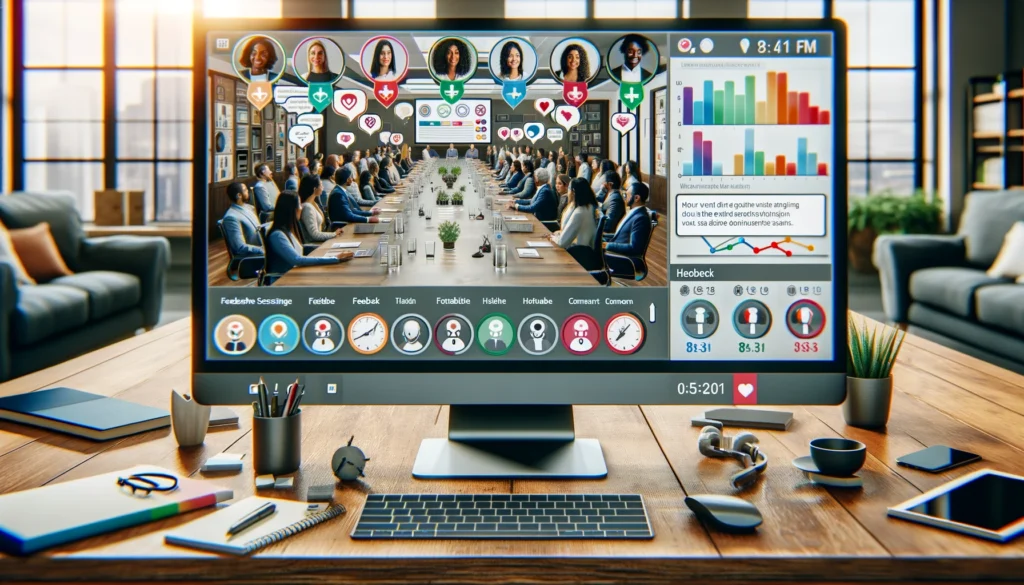
Five tech acquisitions that occurred in the last four years
2020 Bain & Company acquired Pyxis, a consumer behavior and analytics firm. This acquisition aimed to strengthen Bain’s advanced analytics and customer insights capabilities.
2020 Medallia acquired Voci Technologies, a real-time speech-to-text platform. The purchase enhanced Medallia’s audio and video capabilities in customer feedback analysis.
2021 Kantar acquired Numerator, a market intelligence firm that provides detailed insights into consumer purchasing and media consumption behaviors.
2020 Bazaarvoice acquired Curalate, a visual commerce and marketing platform. This acquisition strengthened Bazaarvoice’s social content integration and commerce-driven data analytics.
2020 Forsta acquired Dapresy, a visual data reporting platform. The purchase expanded Forsta’s research and insights technology offerings.
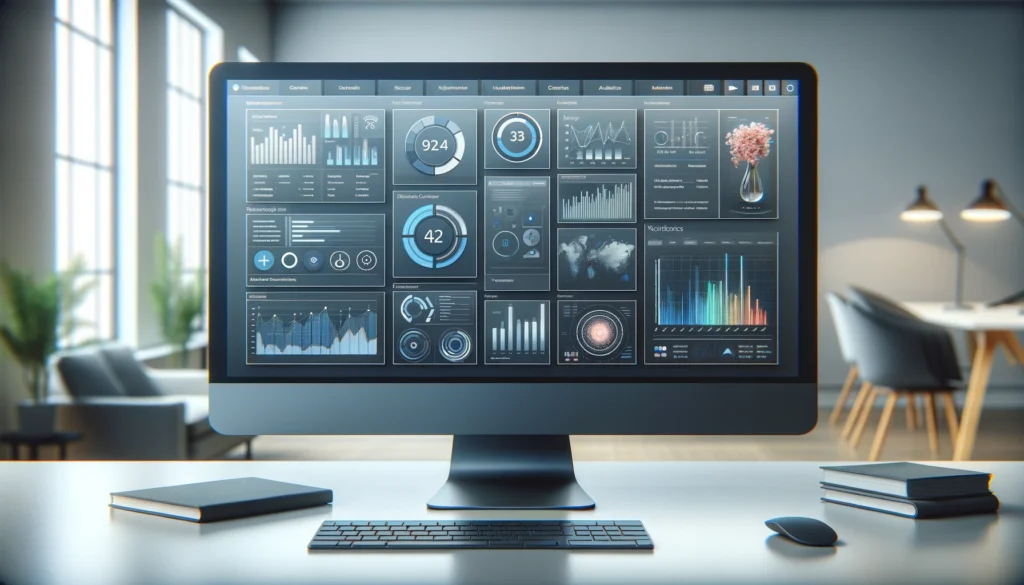
The future of Restech
The future seems poised for exponential growth, blending innovative technologies with traditional market research methodologies to offer richer, data-driven insights.
As we look ahead, ResTech is expected to lean heavily into artificial intelligence (AI) and machine learning (ML), algorithms that can sift through vast datasets in moments, finding patterns and insights that would take humans significantly longer.
This shift promises to dramatically reduce the time and resources needed for data analysis, allowing companies to respond to market trends with agility and precision.
Another exciting frontier for ResTech is the integration of predictive analytics. Beyond analyzing current data, future tools will likely focus on forecasting future trends and consumer behaviors.
The ability to predict shifts in consumer preferences could revolutionize product development, marketing strategies, and customer experience.

Conclusion
The choice between managed services and Software is nuanced and dependent on a brand’s goals, resources, and culture. What’s clear is that the ResTech revolution is not coming; it is here.
As Restech continues to mature, we’ll likely see more brands taking the plunge and reclaiming control over their market insights and agencies adopting tech to streamline their operations.
The true mark of success will be marrying the Software’s advanced capabilities with the human element of agencies. Even as we tip the scales toward technological solutions, nothing can replace the intuition of experience.

